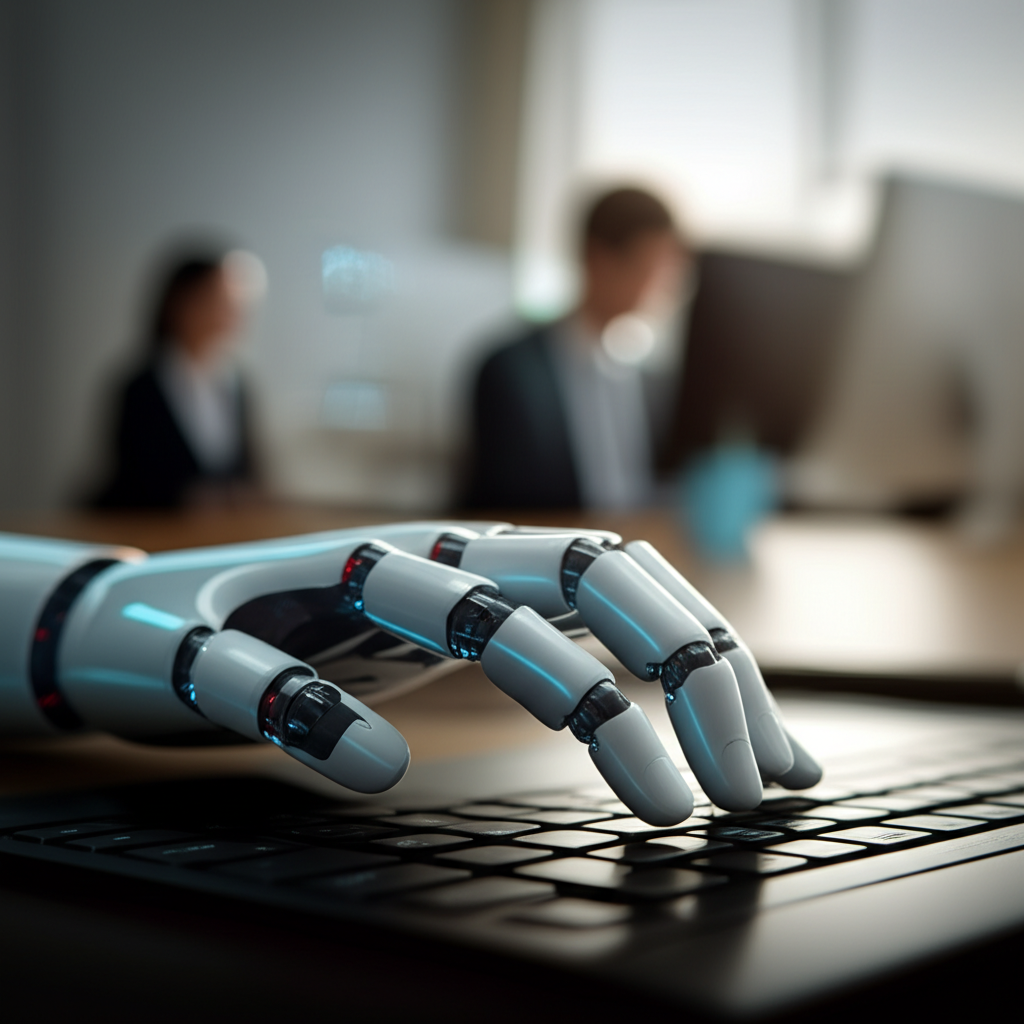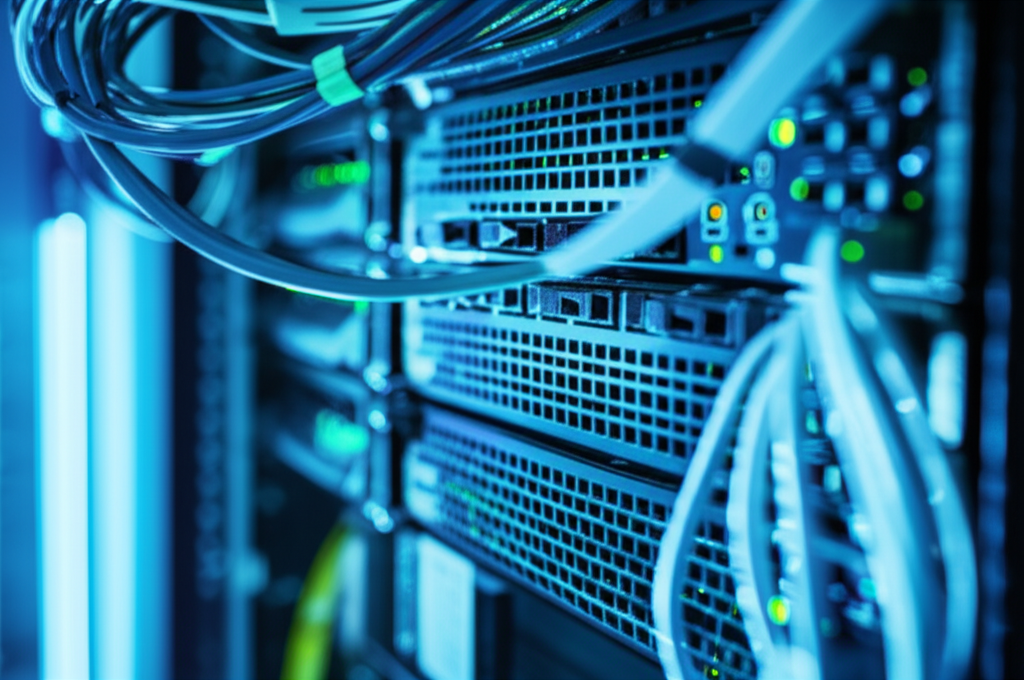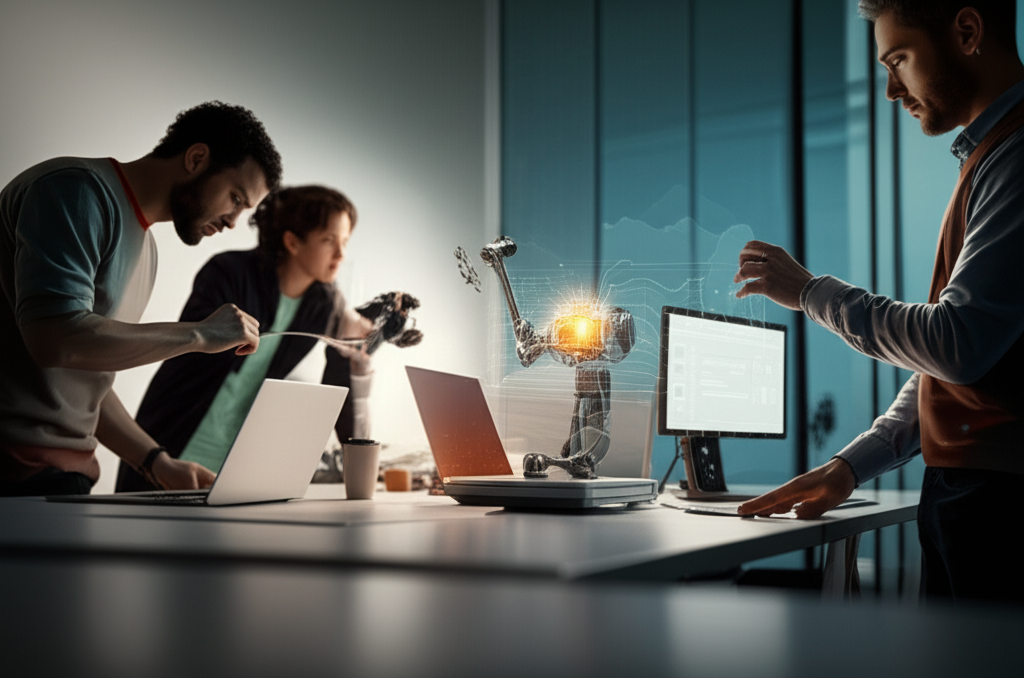
Meta description: Are AI agents poised to replace human workers by 2025? Explore the advancements, challenges, and future impact of AI on the job market.
The Rise of AI Agents: Hype vs. Reality
The buzz around AI agents is intensifying, painting a picture where these sophisticated systems automate complex tasks, potentially reshaping industries and even displacing human roles. Are these predictions mere hype, or is there a genuine possibility that 2025 will mark a turning point? AI agents are designed to perceive their environment, make decisions, and take actions to achieve specific goals, and their rapid advancement warrants a closer look.
The reality lies somewhere in between the utopian vision of effortless automation and the dystopian fear of widespread job losses. While AI agents are already making inroads in various sectors, numerous factors will influence their adoption rate and overall impact.
Capabilities of Advanced AI Agents
Today’s AI agents are far more capable than the rule-based systems of the past. They leverage machine learning, natural language processing, and other cutting-edge technologies to handle intricate tasks.
– **Autonomous Task Completion:** AI agents can independently manage entire workflows, from data collection and analysis to report generation and customer service.
– **Adaptive Learning:** These systems continuously learn from experience, improving their performance over time and adapting to changing conditions.
– **Personalized Interactions:** AI agents can tailor their responses and actions to individual users, creating more engaging and effective experiences.
– **Complex Problem Solving:** They can tackle multifaceted problems by breaking them down into smaller steps and applying appropriate strategies.
Examples of AI Agent Applications
AI agents are already demonstrating their potential in a variety of fields:
– **Customer Support:** AI-powered chatbots provide instant answers to customer inquiries, resolve issues, and escalate complex cases to human agents.
– **Financial Analysis:** AI agents analyze market data, identify investment opportunities, and manage portfolios.
– **Healthcare:** AI agents assist doctors with diagnosis, personalize treatment plans, and monitor patient health.
– **Supply Chain Management:** AI agents optimize logistics, predict demand, and prevent disruptions.
Will AI Agents Replace Human Workers? A Balanced Perspective
The question of whether AI agents will replace human workers is complex and multifaceted. While automation will undoubtedly transform the job market, a complete takeover seems unlikely in the near future.
– **Augmentation, Not Replacement:** In many cases, AI agents will augment human capabilities, freeing up workers from repetitive tasks and enabling them to focus on more strategic and creative activities.
– **Skill Gaps and Retraining:** The transition to an AI-driven economy will require significant investment in retraining and upskilling programs to help workers adapt to new roles.
– **The Importance of Human Skills:** Empathy, critical thinking, and complex problem-solving are skills that are difficult to automate and will remain highly valued in the future.
– **New Job Creation:** As AI agents automate existing tasks, they will also create new job opportunities in areas such as AI development, maintenance, and ethical oversight.
– **Economic Data**: According to a McKinsey report, while automation could displace a significant number of workers, it will also create new job categories that don’t currently exist, leading to a net positive impact on employment in the long run.
Challenges and Limitations of AI Agent Adoption
Despite their potential, AI agents face several challenges that could slow down their adoption:
– **Data Requirements:** AI agents require large amounts of high-quality data to train effectively, which can be a barrier for organizations with limited data resources.
– **Ethical Considerations:** The use of AI agents raises ethical concerns related to bias, fairness, and accountability.
– **Security Risks:** AI agents are vulnerable to cyberattacks and could be exploited to cause harm.
– **Integration Complexity:** Integrating AI agents into existing systems can be complex and costly.
– **Explainability and Trust:** It can be difficult to understand how AI agents make decisions, which can erode trust and limit their adoption in critical applications.
Preparing for the Future: Strategies for Success
To thrive in an AI-driven world, individuals and organizations need to adopt proactive strategies:
– **Embrace Lifelong Learning:** Continuously acquire new skills and knowledge to stay ahead of the curve.
– **Develop Human-Centric Skills:** Focus on developing skills that are difficult to automate, such as creativity, critical thinking, and emotional intelligence.
– **Explore AI Collaboration Opportunities:** Seek opportunities to collaborate with AI agents to enhance productivity and innovation.
– **Invest in AI Education and Training:** Organizations should invest in training programs to equip their workforce with the skills needed to work effectively with AI agents.
– **Ethical AI Development**: Prioritize the development and deployment of AI agents in an ethical and responsible manner.
Navigating the AI Agent Revolution
The advancements in AI agents are undeniable, and their impact on various industries is already being felt. While the notion of widespread job displacement by 2025 may be an exaggeration, the need to adapt and prepare for an AI-driven future is paramount. By embracing lifelong learning, developing human-centric skills, and exploring AI collaboration opportunities, individuals and organizations can navigate the AI agent revolution and unlock its full potential.
For more insights or collaboration opportunities, visit www.agentcircle.ai.






